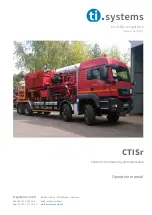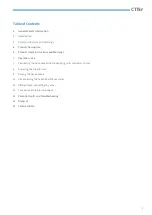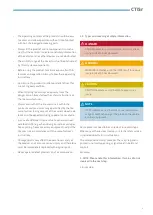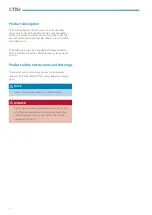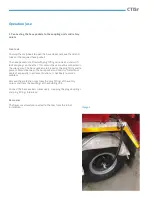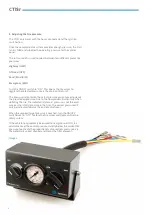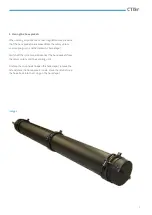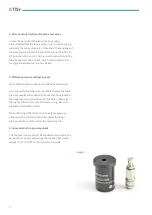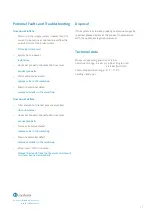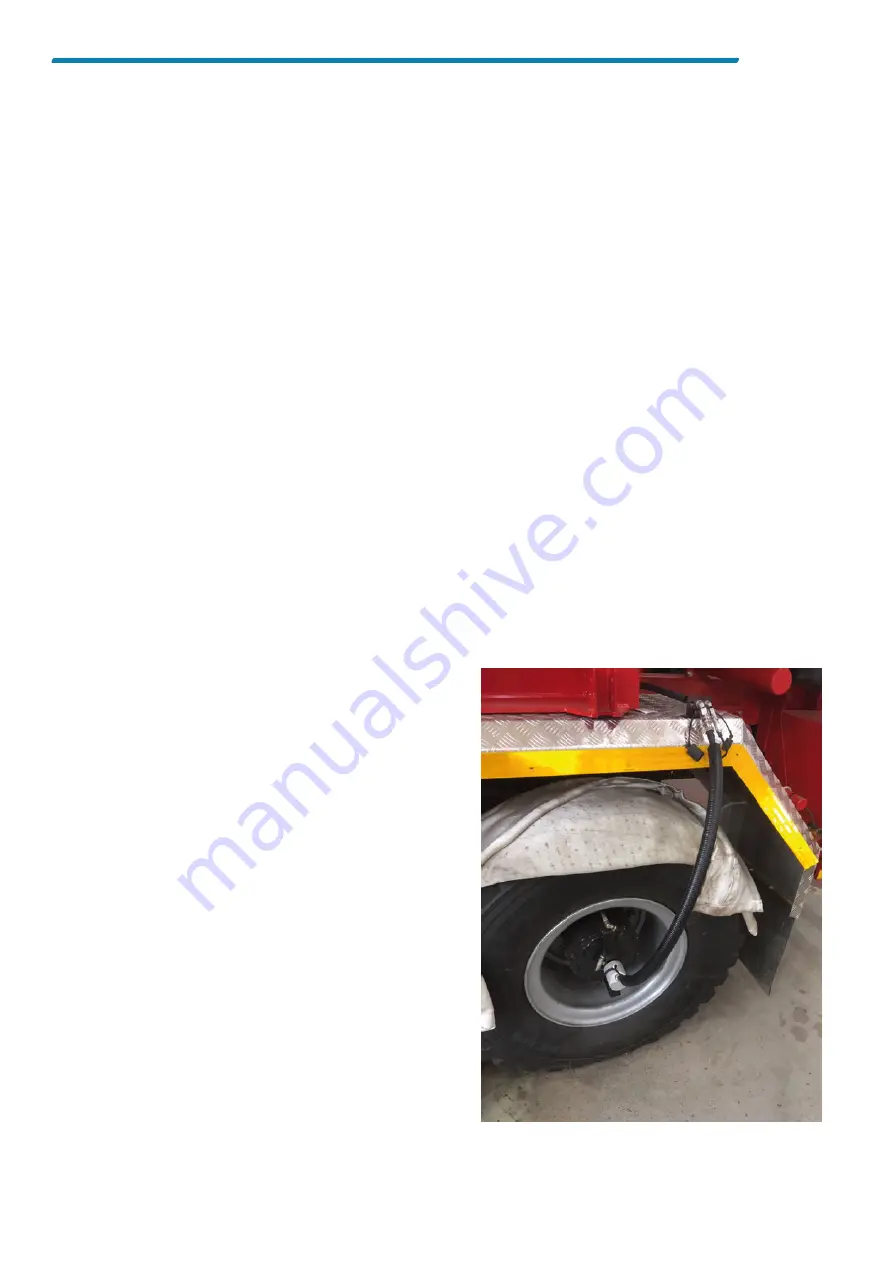
Operation | use
1. Connecting the hose packets to the coupling units and rotary
unions
Front axle:
Unclasp the snap hook to open the hose depot, remove the lid and
take out the required hose packets.
The hose packets are fitted with plug fittings on one end and with
lock couplings on the other. This means they cannot be connected in
the wrong way. The hose packets are braced at the plug fitting end to
prevent contact between the hose packet and tire/rim. Occasional
contact, especially in extreme situations, is not likely to cause a
problem.
Remove the protection caps from the plug fittings of the rotary
unions and from the couplings of the coupling unit.
Connect the hose packets successively, snapping the plug couplings
and plug fittings into place.
Rear axles:
The hoses are already connected to the tires from the initial
installation.
CTISr
7
Image 1

